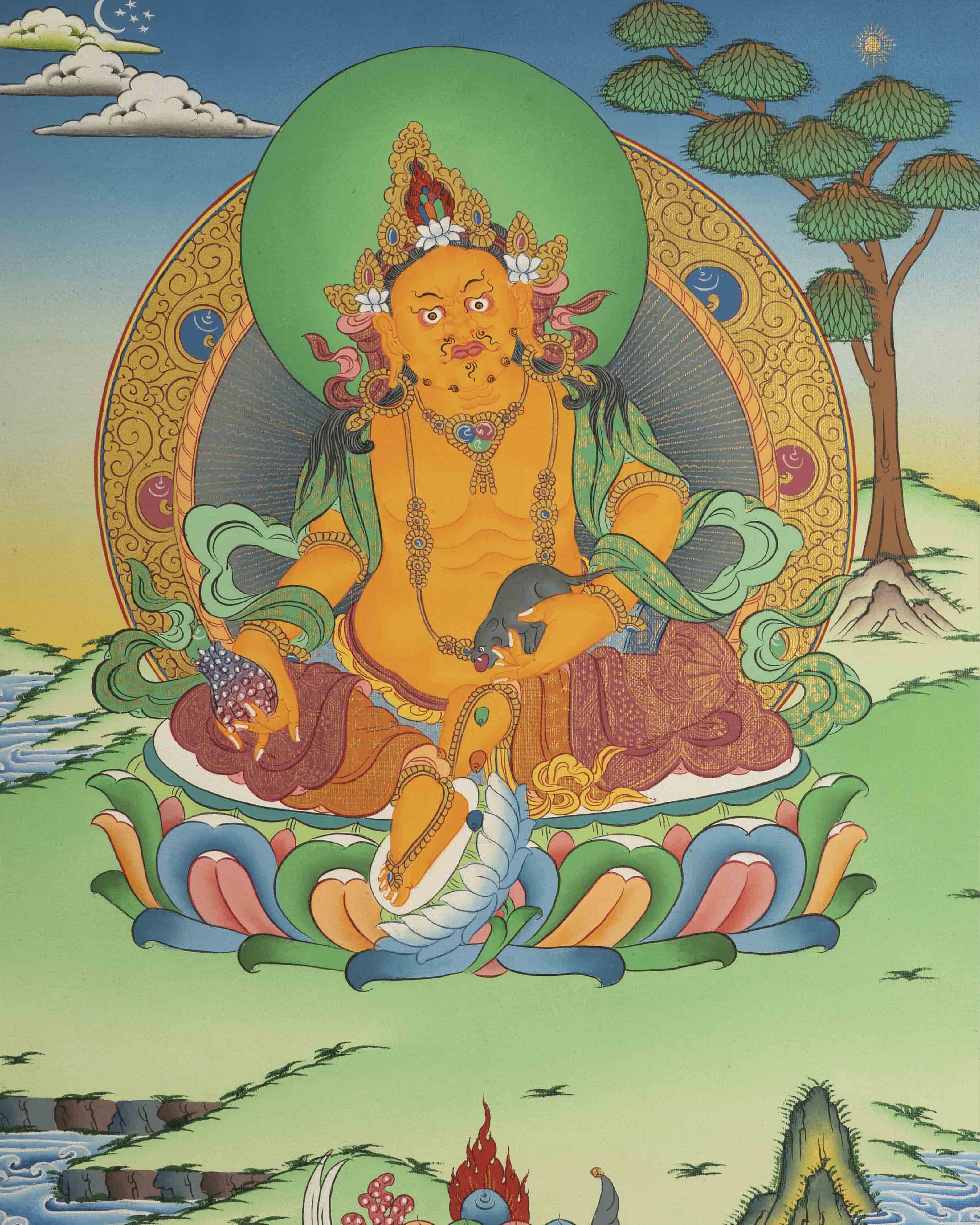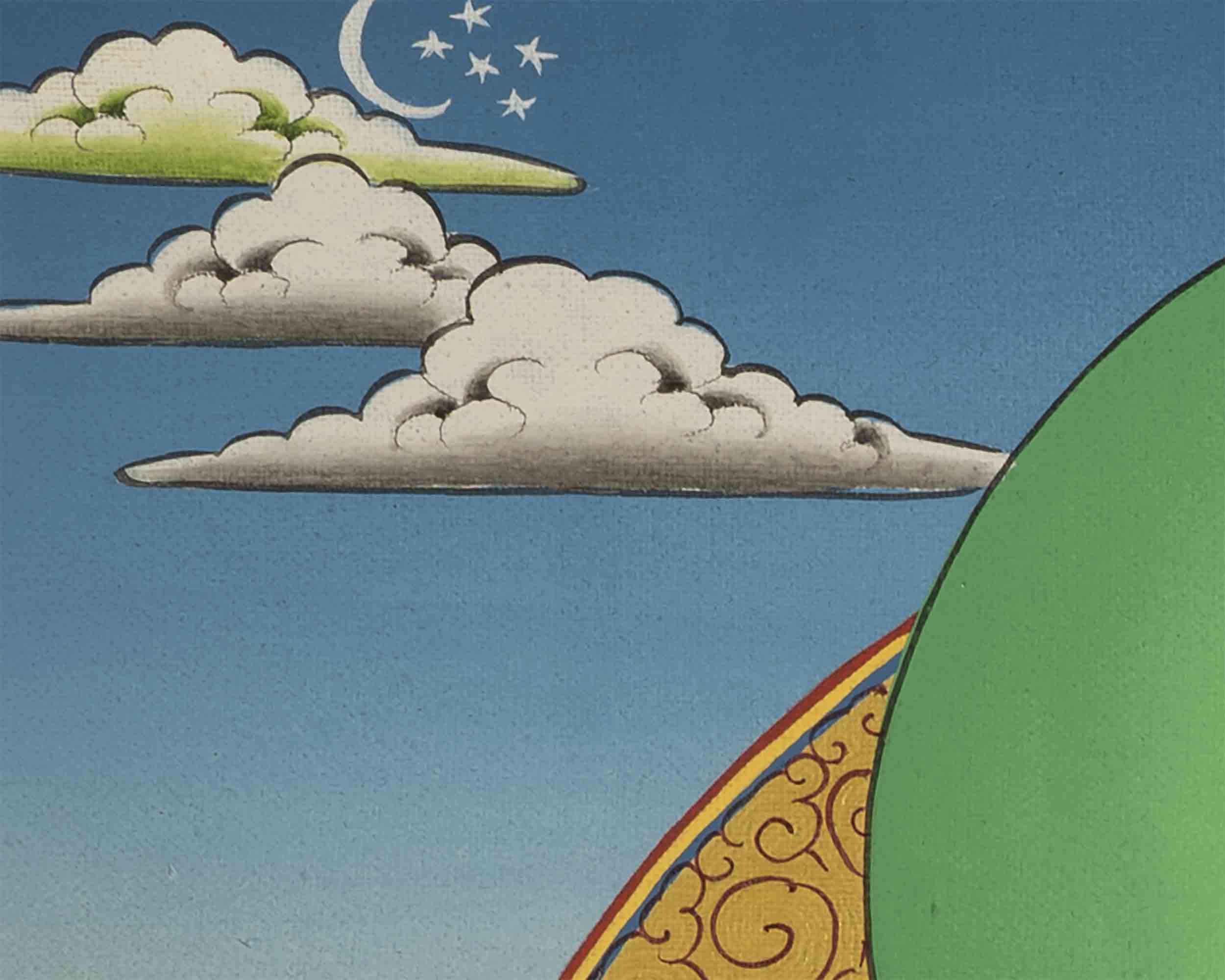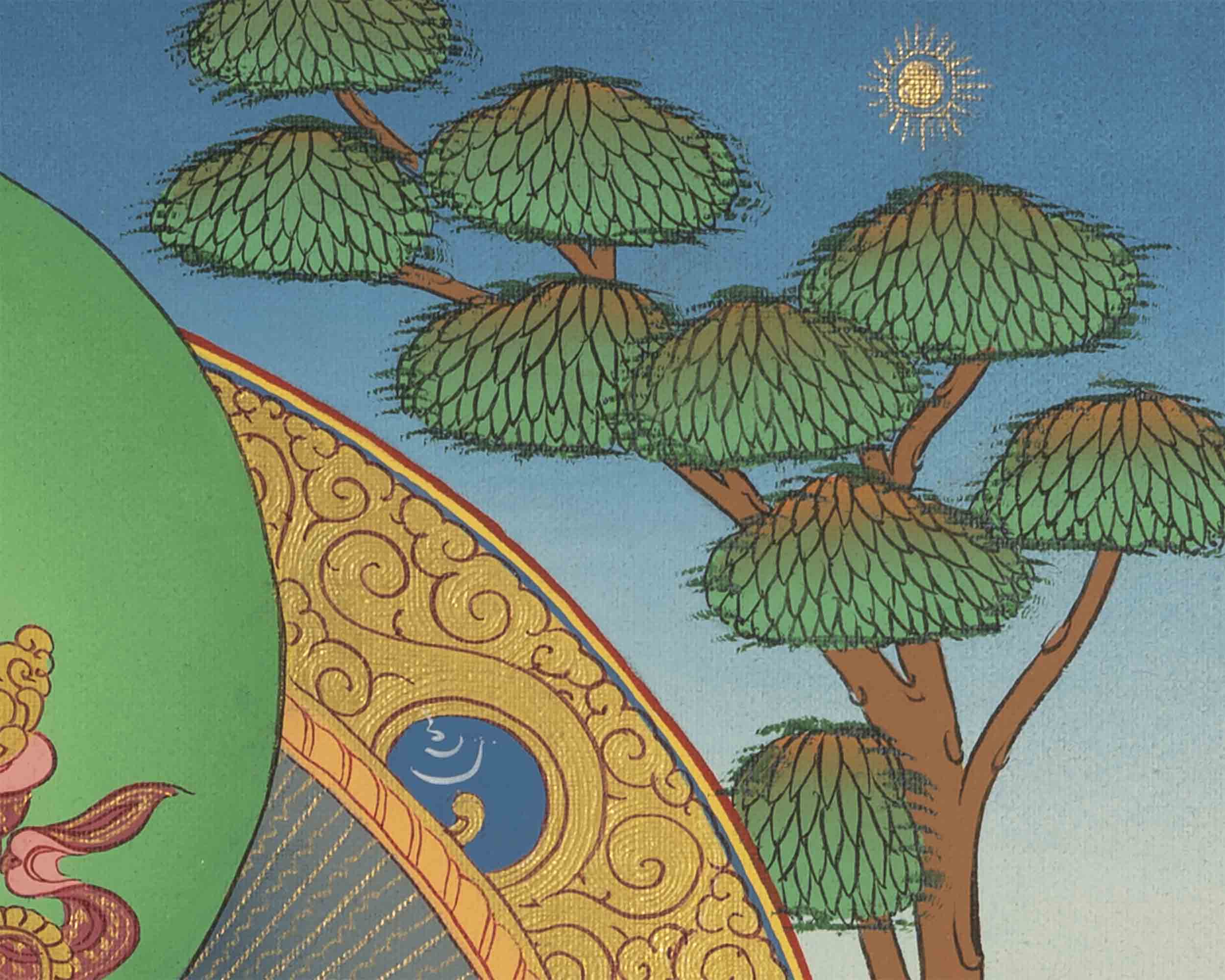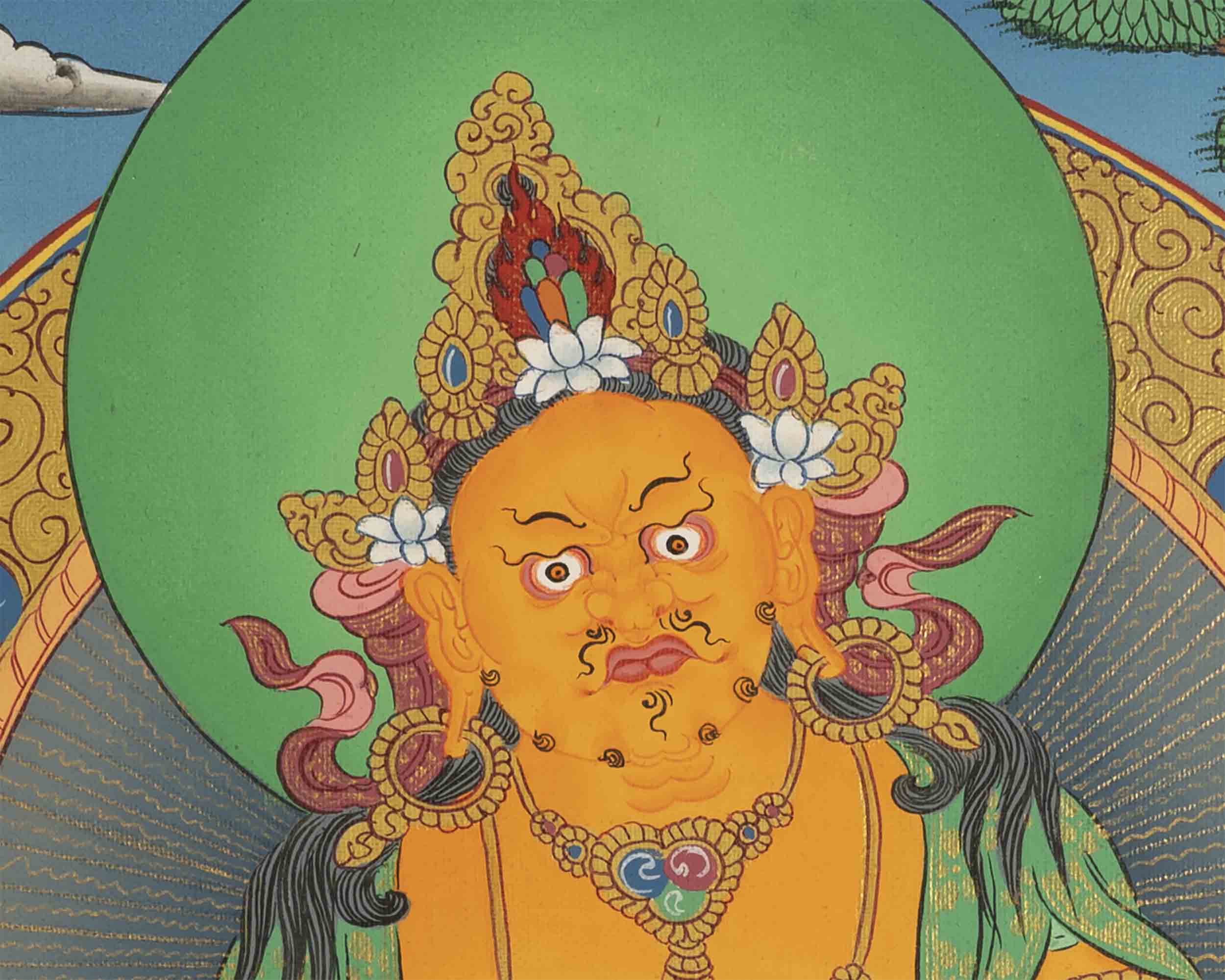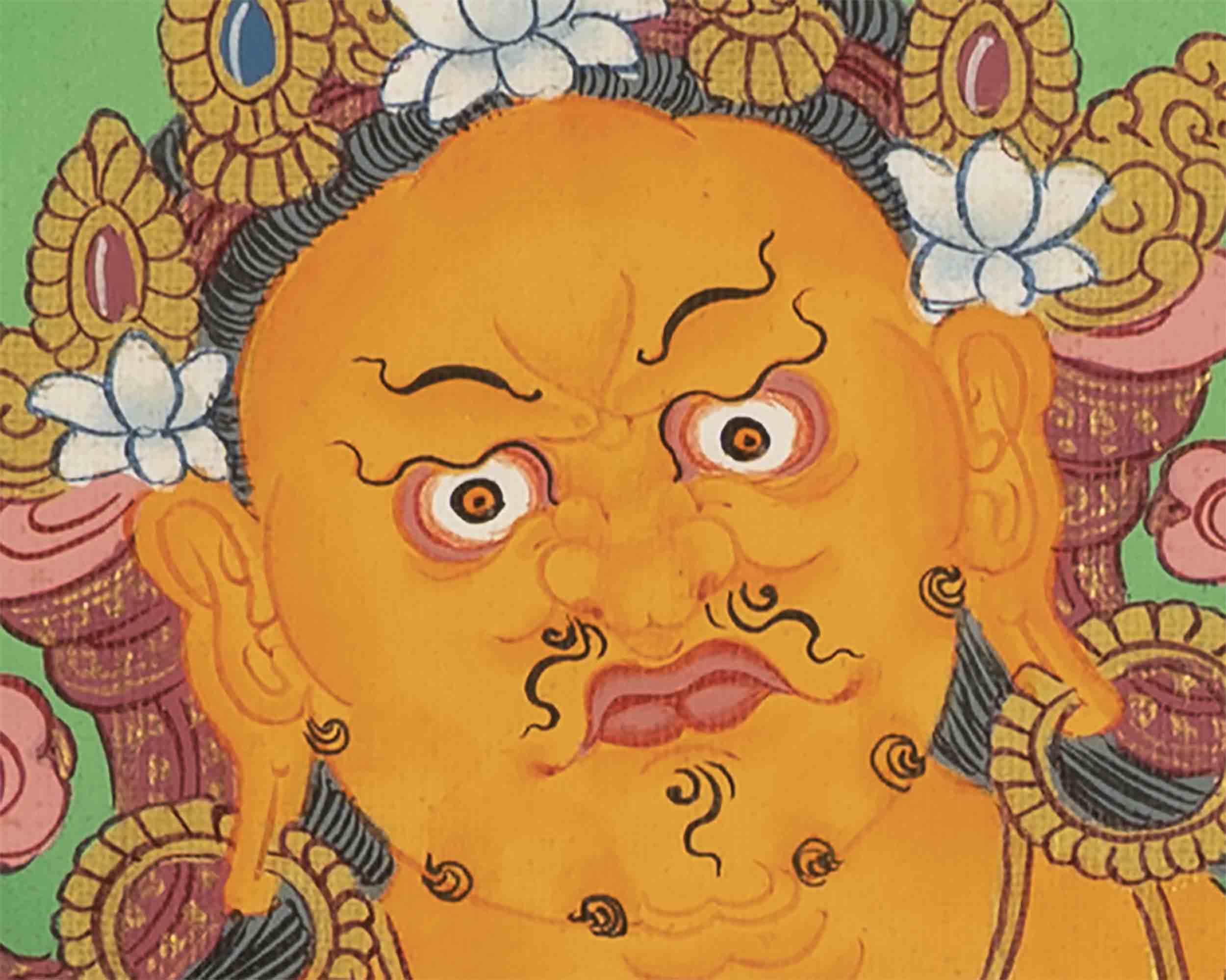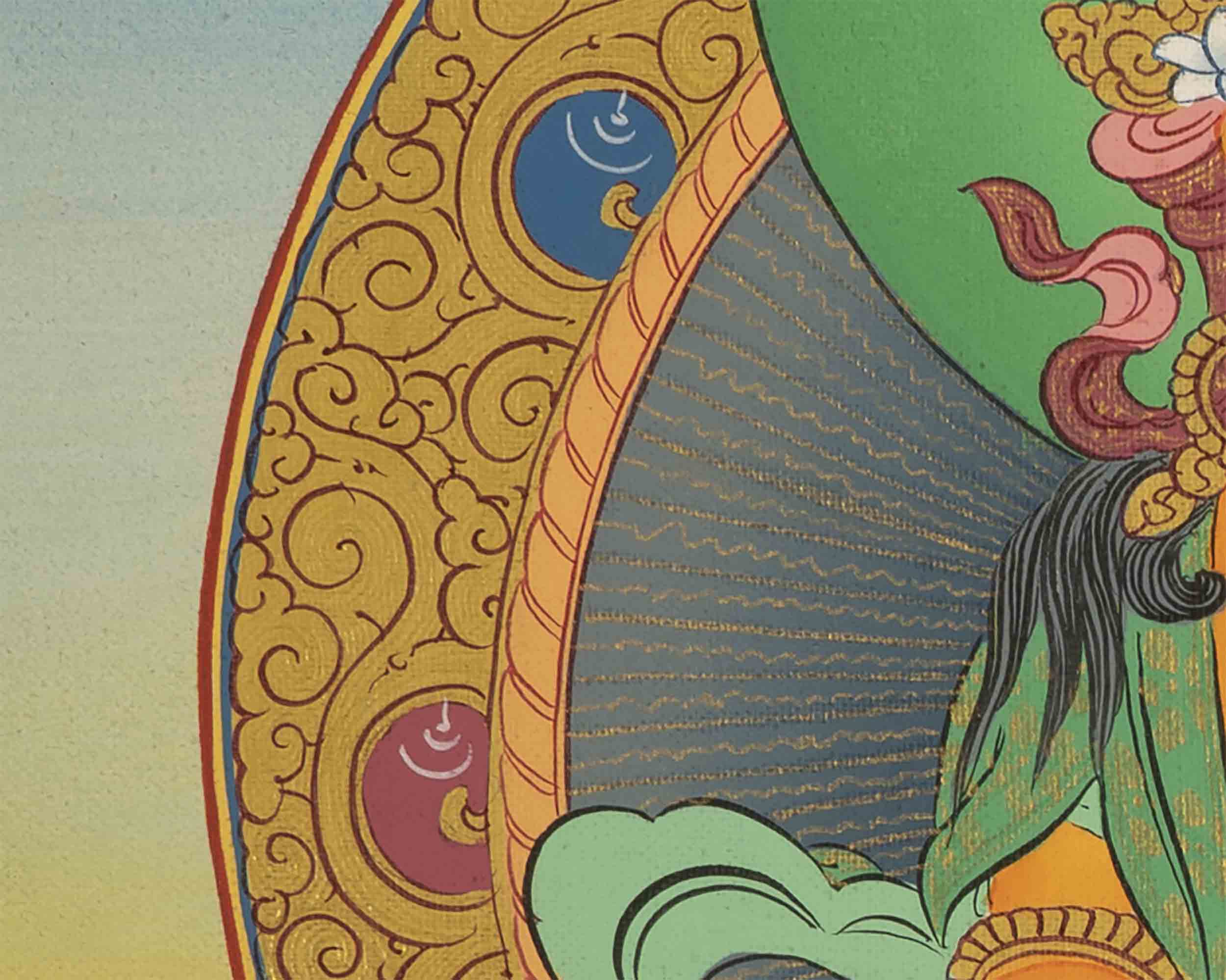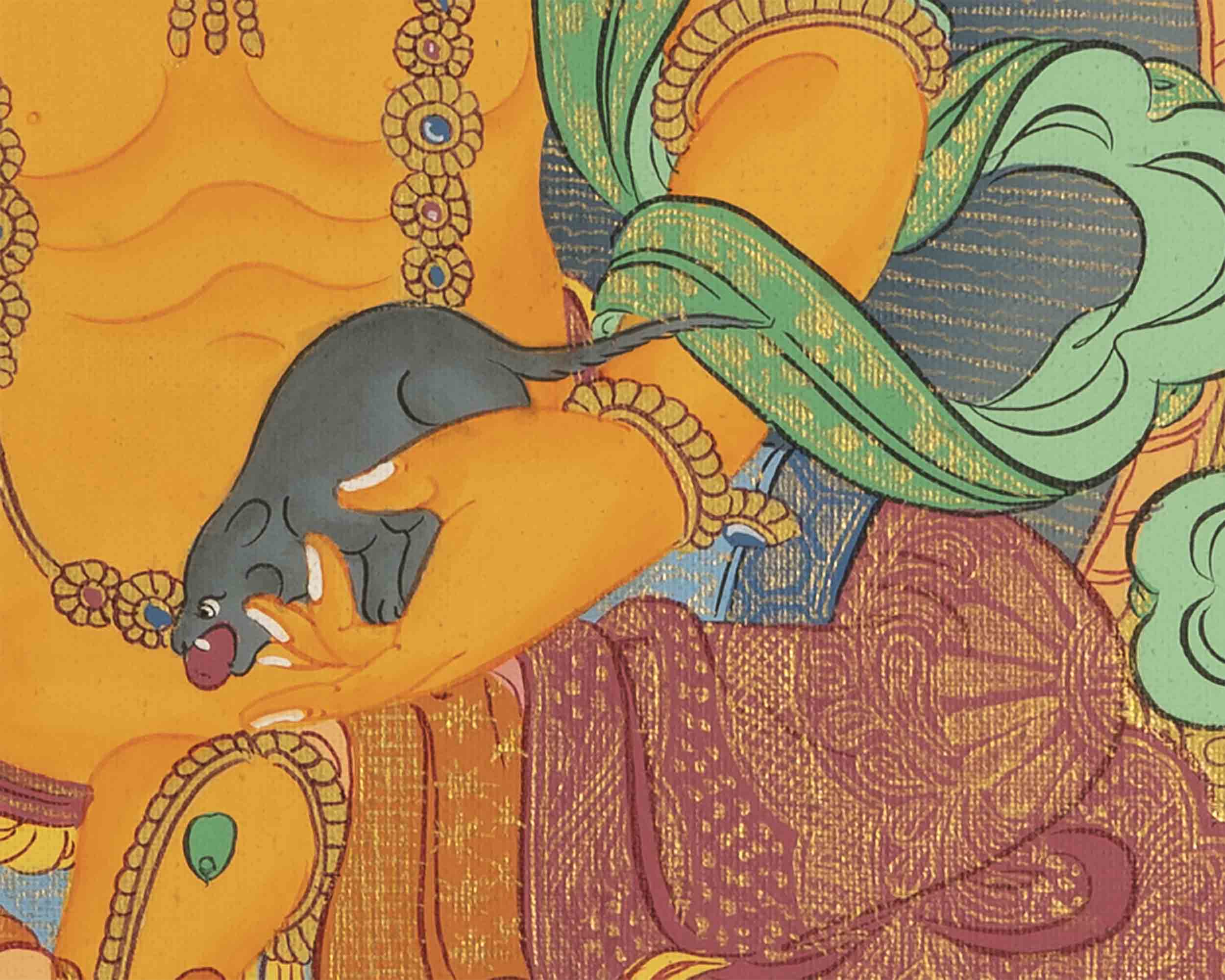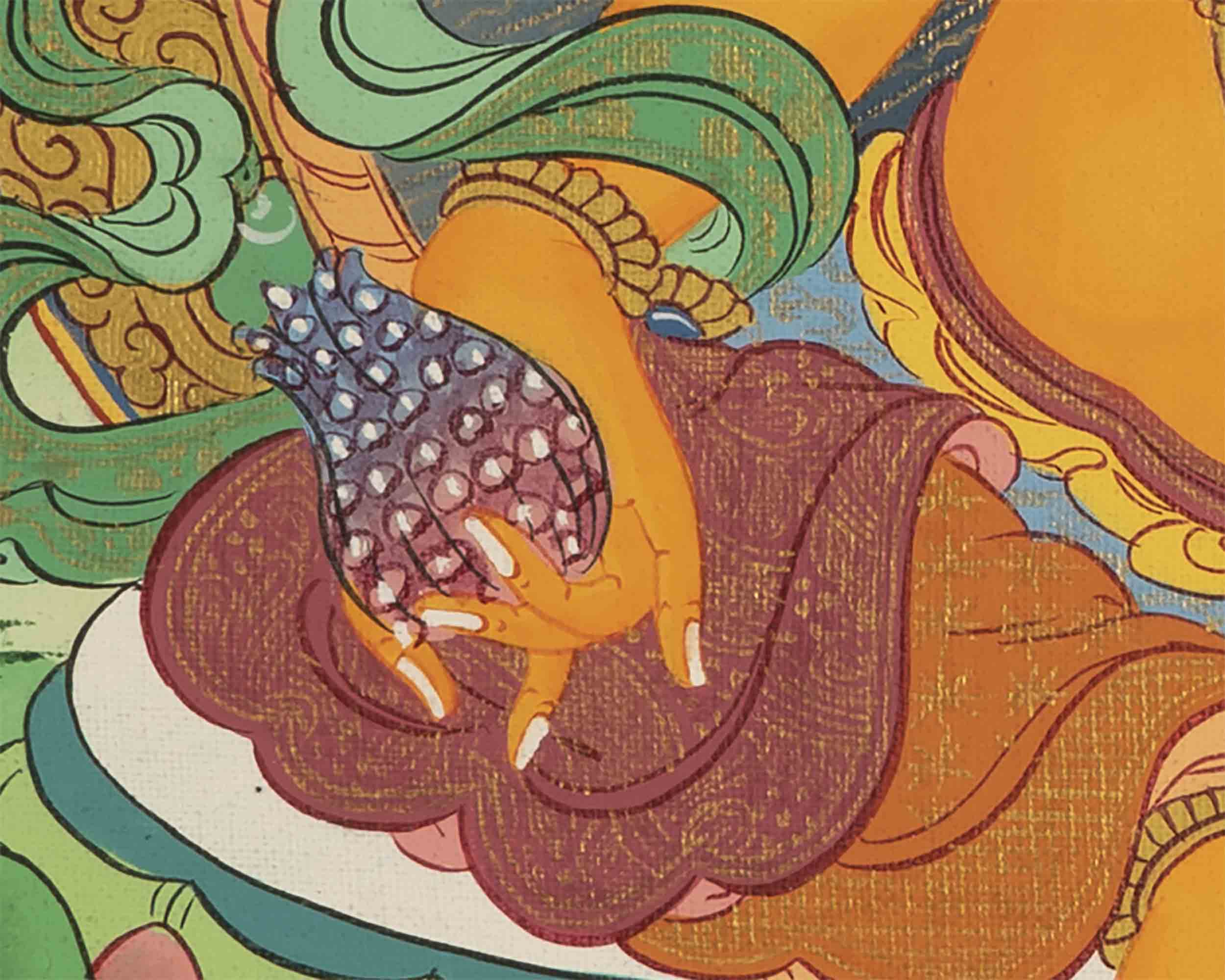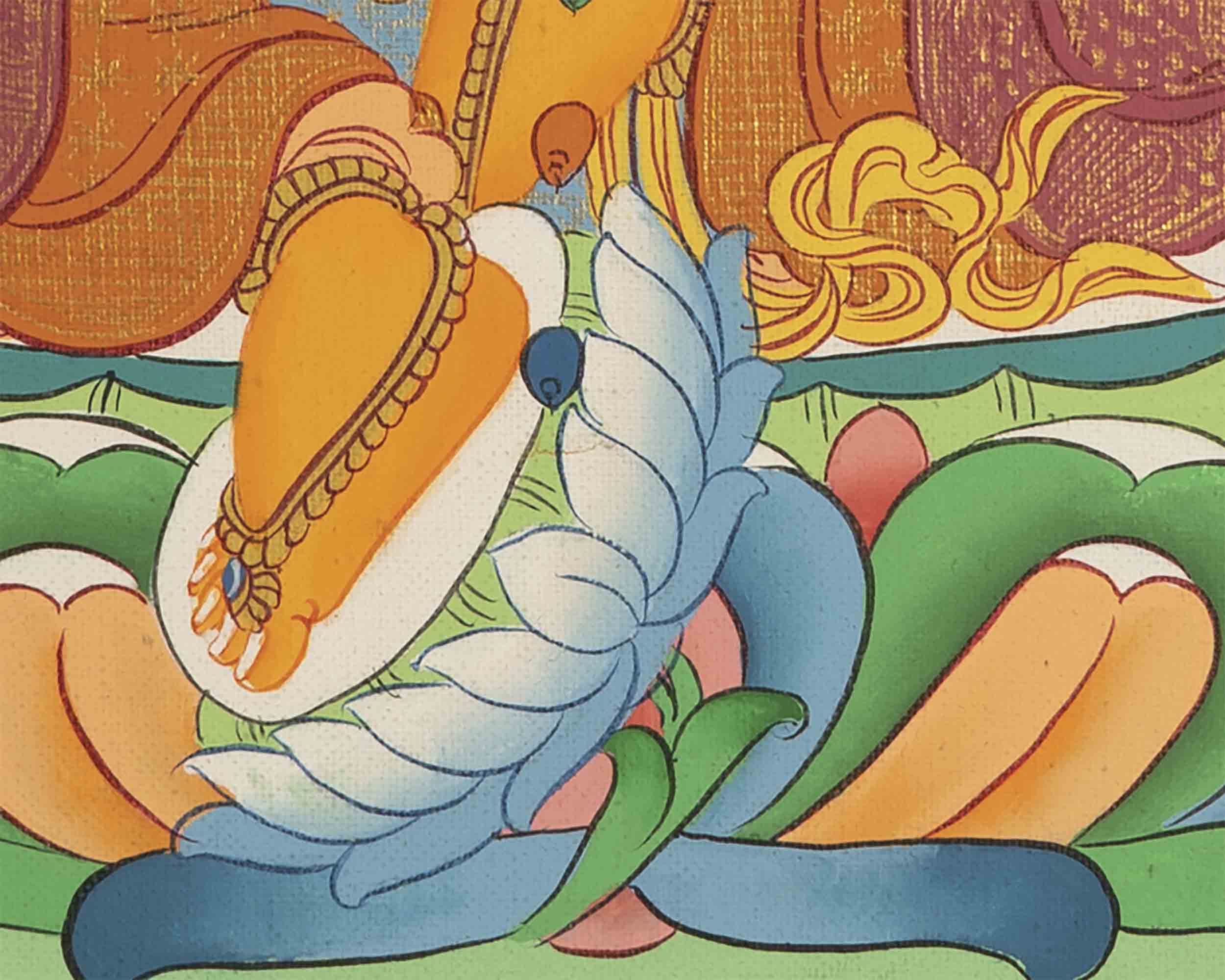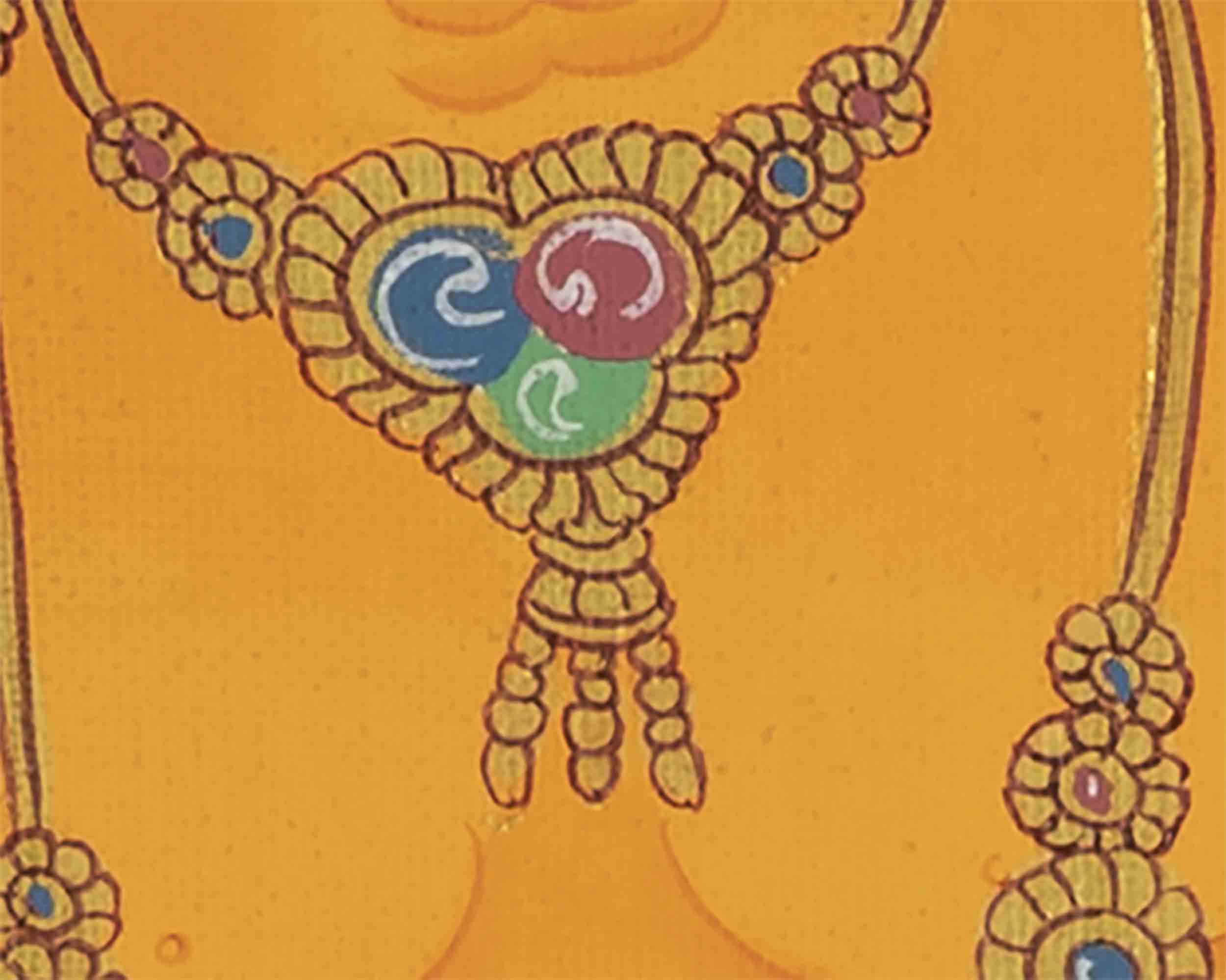Description
Dzambala Kubera Thangka
Introduction To The Thangka :
Dzambala, also known as Kuber is the god of wealth. Zambala or Kubera is also believed to be an emanation of Avalokitesvara or Chenrezig, the Bodhisattva of Compassion. Zambala is the fortune of wealth and prosperity. It is believed that if anyone keeps the painting or statue of Zambala in their home they will be blessed with wealth and prosperity.
It is believed that Zambala practice can remove poverty in all six realms and increase the merits, wisdom, compassion, lifeline and wealth.
Zambala sits on a lotus, holding a mongoose named Nehulay, which spews forth precious jewels and ornaments. He is said to be able to grant wishes and help increase financial abundance.
How does Thangka benefit us?
It goes without saying that every detail of a painting has a symbolic meaning. Regardless of your religious affiliation, a thangka can help you on your path to enlightenment, whether you practice Buddhism or have other religious convictions. Thangkas are paintings that depict deities with various iconographic elements and symbolism that encourage meditation on the teachings of the god they depict. Any thangka is intended to aid in the removal of the film of ignorance, which is a significant barrier to the road to enlightenment. The Thangka is revered as a holy item. They promote positivity, spread Buddhism's teachings, bring about peace, harmony, and oneness, and dispel any negative energy that may be there.
------------------------------------------------------------------
Size: 10"/ 25 cm (width) x 13"/ 33 cm (height)
Materials: Cotton Canvas, Acrylic Colors, Genuine 24K Gold
------------------------------------------------------------------
THIS THANGKA IS HAND-PAINTED IN THE TRADITIONAL STYLE AND THE QUALITY IS HIGH
------------------------------------------------------------------
How to take care of your thangka?
-Hang your thangka in a traditional silk brocade
-Regular Inspection of your thangka; examine the borders and all attachments.
-Keep thangkas covered when they are on display but not in use.
-Rotate thangkas between display and storage on a regular basis, two to four times a year, to reduce the amount of exposure to light. Keep away from sunlight and humidity.
-Do not apply liquids or other materials to the surface of the thangka.

